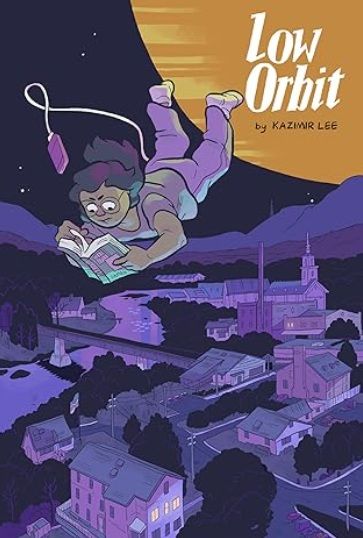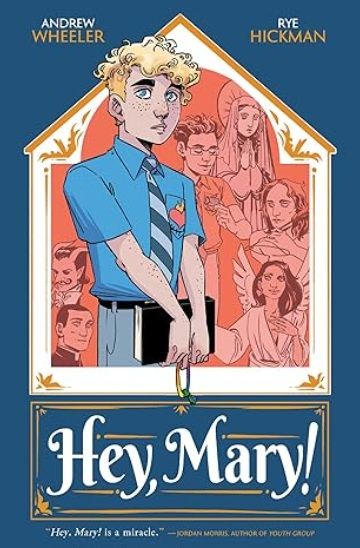This content contains affiliate links. When you buy through these links, we may earn an affiliate commission.
Every time I turn around, there’s some new study talking about how lonely everyone is and how bad loneliness is for health and lifespan. These days, though, between the rise of technology, the fall of safe public spaces, and the politicization of people’s identities, it can be hard to find people you connect with and trust.
The one bit of good news is that finding “connection in an isolating age” (to steal from Rent) is not as impossible as it may sometimes seem, because community can be found in many different places.

This April gave us two new comics addressing this very topic: Low Orbit by Kazimir Lee and Hey, Mary! by Andrew Wheeler and Rye Hickman. Both start with a similar premise – a closeted teen struggles to come out to their parents and eventually finds the support they need to be themselves – and take it in very different yet equally important directions.
In Low Orbit, the main character is Azar, a Malaysian American lesbian dealing with her parents’ marital strife, a move to a new town, and her mother’s refusal to even let her come out (never mind accept her as she is). Relief comes from her nonbinary best friend Tristan and their father/Azar’s landlord, a boozy science fiction writer whose work becomes a touchstone for Azar.
Hey, Mary! is about a Catholic boy named Mark who cherishes the sense of community he gets from participating at his church but. At the same time, he feels stifled and shamed by the church’s homophobic teachings. Mark, like Azar, pushes through his isolation by finding support from both stories and people – in this case, from the real people he is friends with and the queer historical and religious figures whose lives complicate the simplistic vision promoted by the Catholic Church.


In both comics, institutions that are often revered as the ultimate in societal support structures – the nuclear family and organized religion – have failed the main characters. They are left adrift and in search of substitutes. For Azar, a pivotal moment comes when she stumbles upon a ratty old copy of her landlord’s novel, which brings her closer to him while also threatening her relationship with Tristan. For Mark, there is no single moment of epiphany. Instead, a series of conversations, real and imagined, with the people who matter to him help him to better understand his faith and his identity.
The Stack
Sign up to The Stack to receive Book Riot Comic’s best posts, picked for you.
Their journeys, while radically different, show that there is no single path to self-acceptance or building a family. You can look for solidarity in your favorite media, in people you’ve known for years, in new acquaintances, and in the stories of trailblazers who overcame obstacles similar to what you face right now. Even those traditional organizations may turn out to be more flexible and accepting than you realized, leading to a greater appreciation for and understanding of them.
Whether you already have a solid support structure or are still looking for something or someone to lean on, these comics assure us that there is a community waiting to love and care for each of us … even if it takes a little while to find or make it. It’s a shame these comics came from different publishers because I think Mark and Azar would have a lot to talk about.

